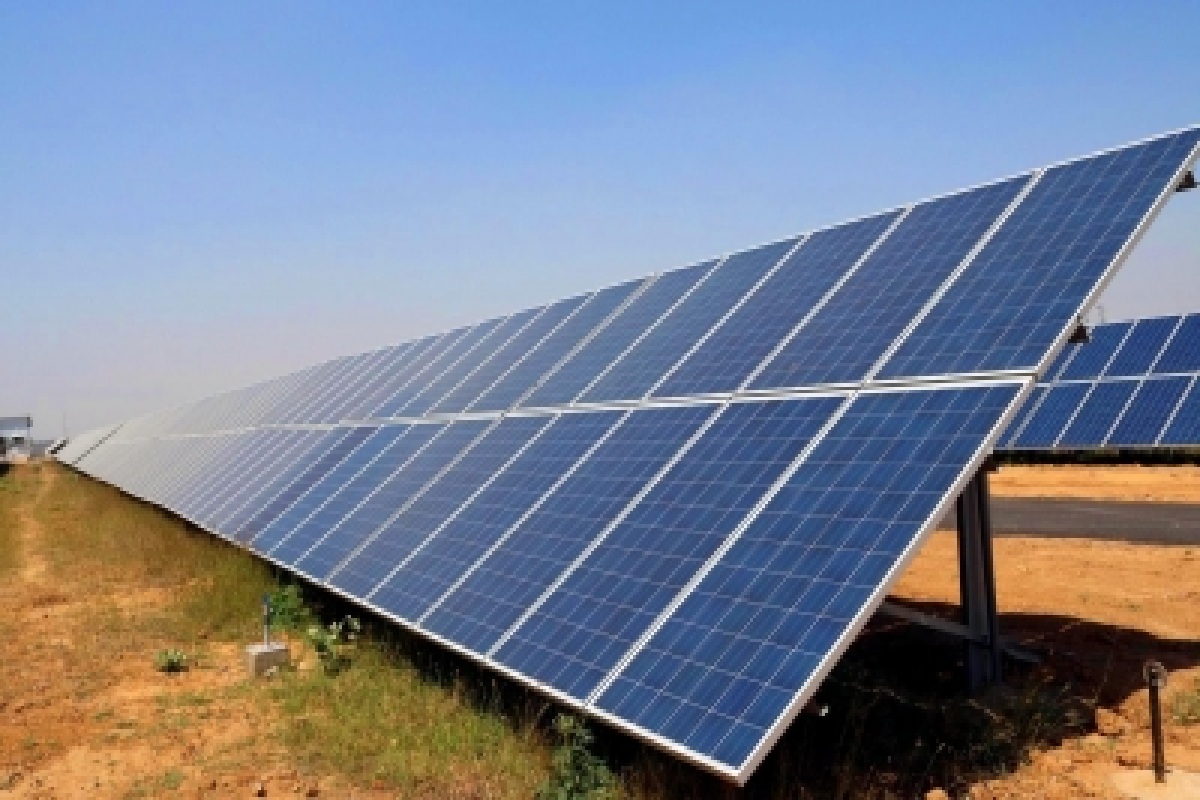India and NATO~III
It can be said that India’s Taiwan policy options are limited. We cannot take on the Chinese single-handedly. QUAD’s policy towards Taiwan is somewhat vague and ambiguous.
India saved $4.2 billion in fuel costs through solar energy generation and avoided an additional 19.4 million tonne (mt) of coal in the first half of the year, a study said on Thursday.

Photo: IANS
India saved $4.2 billion in fuel costs through solar energy generation and avoided an additional 19.4 million tonne (mt) of coal in the first half of the year, a study said on Thursday.
The report also said the contribution of solar generation in seven Asian countries – China, India, Japan, South Korea, Vietnam, the Philippines, and Thailand – avoided fossil fuel costs of approximately $34 billion from January to June 2022.
The report compiled by energy think tank Ember said India had been facing the high price of coal and this is one of the main factors in the ongoing power crises. However, the country managed to save $4.2 billion in fuel costs in the reviewed period and also avoided the use for an additional 19.4 mt that could have further stressed the strained domestic energy supply.
Advertisement
The report said as many countries continue to revise their energy development plans, the volatility in commodity markets and the record-breaking fuel costs affecting the price of electricity everywhere must serve as a warning against continued fossil fuel dependence. This needs to be translated into more ambitious solar deployments, capitalising on the massive solar potential in the region, the think tank said in the report.
Solar on the grid is already contributing meaningfully to meeting electricity demand, the report said. Assuming solar replaced the most expensive fossil-based electricity (i.e. either coal, gas, or oil), the think tank said its analysis found that the contribution of solar generation in seven Asian countries – China, India, Japan, South Korea, Vietnam, the Philippines, and Thailand – avoided fossil fuel costs of approximately $34 billion from January to June 2022.
The majority of these estimated savings were in China, where solar met 5 per cent of the total electricity demand and avoided approximately $21 billion in fossil fuels imports from January to June 2022, the report said.
Japan saw the second biggest contribution with $5.6 billion in avoided fuel costs thanks to solar power generation alone, which reached record levels for the country in May this year, the think tank said in the report.
Vietnam’s solar power avoided $1.7 billion in potential fossil fuel costs, it said, adding that notably, Vietnam’s solar generation was close to zero Terawatt-hour (TWh) in 2018. In 2022, solar accounted for 11 per cent (14 TWh) of electricity demand from January to June, the report said.
In Thailand and the Philippines, where the growth in solar has been slower, the avoided fuel cost is still notable, the think tank said in a report. While solar only accounted for 2 per cent of Thailand’s electricity in the first six months of 2022, an estimated $209 million of potential fossil fuel costs were avoided. Similarly, the report said the Philippines avoided $78 million in fuel costs, despite solar accounting for only 1.7 per cent of generation.
In South Korea, solar had a 5% generation share in the first half of the year, avoiding potential fossil fuel use costing $1.5 billion.
In many geographies, the think tank says solar power offers the cheapest electricity in history. In the wake of soaring fossil fuel prices, the importance of diversified and domestic renewable energy has only become clearer. The report said the cost of continued reliance on expensive fossil fuels is evident in the supply crunches and increasing electricity prices that many countries are seeing today.
Advertisement